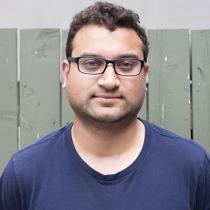Canadiens legend Henri Richard posthumously diagnosed with CTE
Henri Richard won an NHL-record 11 Stanley Cups with the Montreal Canadiens during his 20-year career.
Montreal Canadiens legend Henri Richard was posthumously diagnosed with stage 3 chronic traumatic encephalopathy (CTE), Richard’s son, Denis, announced Wednesday.
Richard died in 2020 at the age of 84. In 2015, Richard was diagnosed with Alzheimer’s disease.
CTE is a neurodegenerative disease that is linked to repeated brain trauma and can only be diagnosed posthumously. According to the Concussion Legacy Foundation, Richard is the 16th known NHL player diagnosed with CTE and the second Hall of Famer, after Chicago Blackhawks forward Stan Mikita.
CTE is commonly associated with professional football, particularly after the documentary series and best-selling book, League of Denial, highlighted the work of Boston University’s Center for the Study of Traumatic Encephalopathy.
“I hope my father’s brain donation and diagnosis will lead to more prevention efforts, research, and eventually a CTE treatment,” Denis Richard said in a statement. “I want people to understand this is a disease that impacts athletes far beyond football.”
NHL commissioner Gary Bettman disputed the link between hockey and CTE in an April interview with NPR.
“We listen to the medical opinions on CTE, and I don't believe there has been any documented study that suggests that elements of our game result in CTE,” Bettman said. “There have been isolated cases of players who have played the game [who] have had CTE. But it doesn't mean that it necessarily came from playing in the NHL."
Richard won an NHL-record 11 Stanley Cups with the Canadiens during his 20-year career, spanning 1955-1975. The younger brother of fellow Canadiens great Maurice "Rocket" Richard, Henri was nicknamed “Pocket Rocket” while recording 358 goals and 1,046 points in a franchise-record 1,256 games.
He was named to nine All-Star games and captained the Canadiens from 1971 until his retirement in 1975, four years before the NHL made helmets mandatory.
In 2017, he was named as one of the NHL’s 100 greatest players.

 Yahoo Sports
Yahoo Sports 


